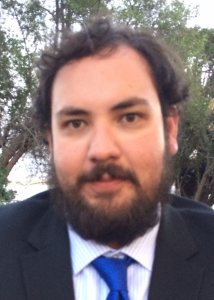José Villagrana
University of California, Berkeley

José Villagrana is a doctoral candidate at the University of California, Berkeley, studying early modern English and Spanish literature. Trasnational and intertextual approaches to questions of early modern Anglo-Spanish cultural exchange and literary form motivate his current work, with other areas of interest including patristic literature, classical rabbinical literature, and disability studies. Villagrana’s dissertation, Doomsday Poetics: Early Modern England and Spain, 1561-1680, shows how, in a time when England saw its national identity and its political future tied to the outcome of its rivalry with Spain, English literary works cast their nationalist Hispanophobia in increasingly apocalyptic terms to highlight a perceived imminent threat stemming from ethno-cultural difference. Doomsday Poetics shows how Sidney, Donne, and Marvell authorized their experimentation with mixing inherited literary genres and modes by invoking the same disparaging terms they mobilized to highlight their aversion to Spanish ethno-cultural and linguistic hybridity. These poets fashioned themselves as nationalist prophets and doomsayers whose poetic making could prevent the unnatural miscegenation that they located in Spanish literature and culture.
At Berkeley he teaches courses covering Sidney, Donne, Shakespeare, Cervantes, Quevedo, and Milton, and research seminars with special topics on Renaissance patronage and contemporary grant writing; apocalypse and culture; and devotional lyric poetry in England and Spain. Work in progress includes a project on disability and poetic subjectivity in Cervantes’ and Shakespeare’s lyrics, as well as a piece on George Herbert and the English translation of Juan de Valdéz’ Ciento diez consideraciones.